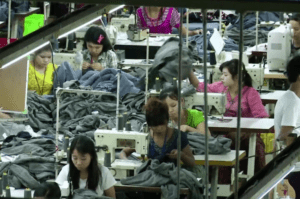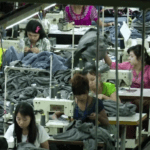Globalization creates job opportunities, but it can also lead to job losses. Managing globalisation to make the most of it is a priority for the EU, as is building a social Europe that helps laid-off workers find new jobs.
Globalisation creates job opportunities in Europe
The number of jobs supported directly or indirectly by EU exports outside the Union is growing steadily. It increased from 21.7 million jobs in 2000 to 36 million jobs in 2017. Every billion EU exports support on average around 13,000 EU jobs.
Job opportunities are not limited to exporting firms, but extend to the firms that supply them with goods and services.
For example, in Spain, exports outside the EU support 1.8 million jobs. Thanks to the EU’s single market, an additional 300,000 Spanish jobs depend on exports from other EU countries to non-EU countries. In total, 1 in 10 jobs in Spain depends on EU exports.
The share of highly skilled workers in export-related jobs is increasing and export-related jobs are on average 12% better paid than other jobs.
The negative impact of globalization on employment
Globalisation generates greater competition between companies, which can lead to closures, relocations and job losses.
The most vulnerable sectors in the EU tend to be those in low-skilled jobs such as textiles, clothing, footwear and leather, or the processing of basic metals and fabricated metal products and manufacturing industries.
Manufacturing industries are more exposed to relocation to countries with cheap labour. While offshoring is a central element of the globalisation debate, the data show that the amount of job losses due to offshoring in the EU is decreasing. Relocation trends are changing, and now more so in Eastern European countries than in Western Member States. Destination countries are in North Africa and Asia.
While the overall results of international trade liberalisation are positive, some sectors are badly affected and the length of the adjustment period that workers need to relocate to other sectors can considerably reduce the initial benefits.
The European Globalisation Adjustment Fund (EGF)
To reduce the negative impact of globalisation and reduce unemployment, the EU created the European Globalisation Adjustment Fund in 2006. Its aim is to support redundant workers who lost their jobs as a result of globalisation.
This emergency solidarity fund co-finances up to 60% of labour policies to rehire workers or set up businesses. Projects funded by the EGF involve education and training, vocational counselling, job search assistance, mentoring and business start-ups.
In 2009, the fund was expanded to cover job losses resulting from major structural changes caused by the economic and financial crisis.
The fund can be used when more than 500 workers have been laid off by a single company and its suppliers, or when a large number of workers lose their jobs in a specific sector in one or more neighbouring regions. Since 2007, the EGF has devoted 630 million euros to helping around 150,000 redundant workers and 3,369 young people.
More information
Access the full news







Leave a Reply